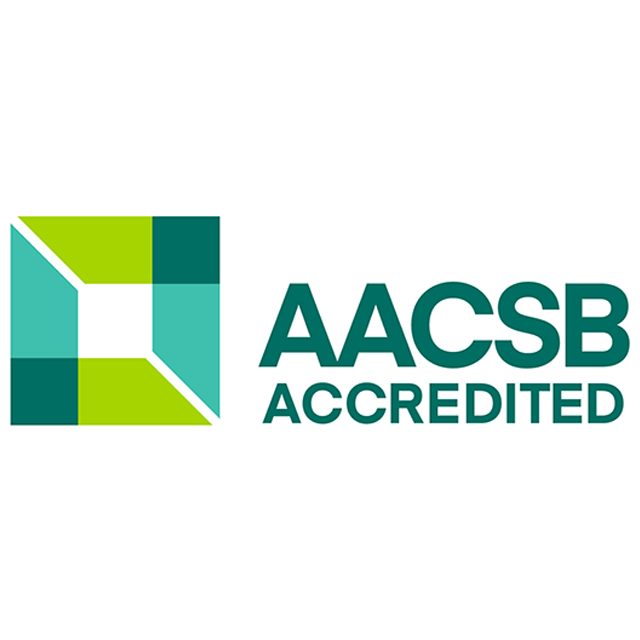M.S. in Analytics and Information Management/M.B.A.
With an M.B.A. and M.S. in Analytics and Information Management (M.S. AIM) joint degree, you will combine strategic business leadership with advanced analytics expertise to drive digital transformation.
A combined 63 credits for these two degrees is reduced to as few as 48 credits through credit-sharing.
Policies & Procedures
- Students must apply and be accepted into both programs of study.
- Students may begin their studies in either program.
- Students who successfully complete all requirements will receive two degrees and two diplomas. The degrees must be conferred simultaneously.
To view the School of Business's complete policies and procedures, visit the Graduate Catalog.
Program Information
Combine strategic business leadership with advanced analytics expertise to drive digital transformation.
Program Type
Dual Degree
Degree
Master's
Duration
Varies
Required Credit Hours
48
Modality
Online
Hybrid
Hyflex
More in This Program
Accreditation
The Association to Advance Collegiate Schools of Business (AACSB) awarded Duquesne's undergraduate and graduate Schools of Business its full accreditation. The AACSB accreditation is recognized as a global mark of distinction. Less than 6 percent of the world's more than 1,200 business schools have passed the rigorous review necessary to earn the honor.
Learning Outcomes
Flex M.B.A.
Ethical Competency
Learners will be able to recognize ethical dilemmas in an organizational context and
apply ethical decision-making frameworks to business decisions.
- Identify an ethical dilemma.
- Apply ethical decision-making frameworks to create an ethically defensible solution for business problems.
Sustainability Perspective
Learners will recognize and apply sustainability principles to strategic decisions
as a means for competitive differentiation.
- Recognize and consider the social, environmental and economic impact of strategic decisions on an organization and society.
- Apply sustainability principles to business decisions resulting in greater efficiency, innovation, and competitive advantage.
Problem Solving
Learners will demonstrate an ability to analyze complex situations, analyze information and evaluate alternatives from different perspectives to develop solutions for business problems and to seize innovative opportunities.
- Identify and frame business problems and opportunities.
- Synthesize quantitative and qualitative data to support decisions.
- Strategically evaluate complex situations to set goals and design functionally integrative plans to move an organization forward.
Management and Leadership Skills
Learners will gain innovative managerial and leadership skills to motivate, lead and
inspire employees and teams to create positive organizational change in a global business
environment.
- Demonstrate managerial skills to motivate people to achieve goals and embrace new opportunities.
- Work effectively as a team.
- Effectively communicate managerial recommendations through both written and verbal communications.
Cultural Intelligence
Learners will possess the skills to manage effectively in a global business environment.
- Apply global business theories and related market-entry strategies to business decisions.
- Demonstrate cultural intelligence in order to bridge cross-national differences in business perspectives and practices.
M.S. in Analytics and Information Management
Business Analytics
Learners have the technical and data analytic skills necessary to provide new insights
to solve business challenges.
- Perform analysis techniques with state-of-the-art tools.
- Recommend appropriate methodologies or techniques to address a business problem.
Data Stewardship
Learners assist businesses by ensuring access to quality data for decision making.
- Capture, manage, transform, and protect critical data.
- Assess the quality of data and to apply appropriate techniques to improve quality.
Actionable Communication
Learners communicate analytic insights that create the opportunity for innovation
and bottom line results.
- Communicate the findings, relevance and potential impact of their analyses to support and influence decisions and strategic change in the organization.
Ethical Mindset
Building on a rich history, Duquesne learners have a holistic view regarding the ethical
implications of data usage.
- Identify legal and ethical issues regarding data and will be prepared to act consistently with ethical principles including those of responsibility, rights, and diversity.



